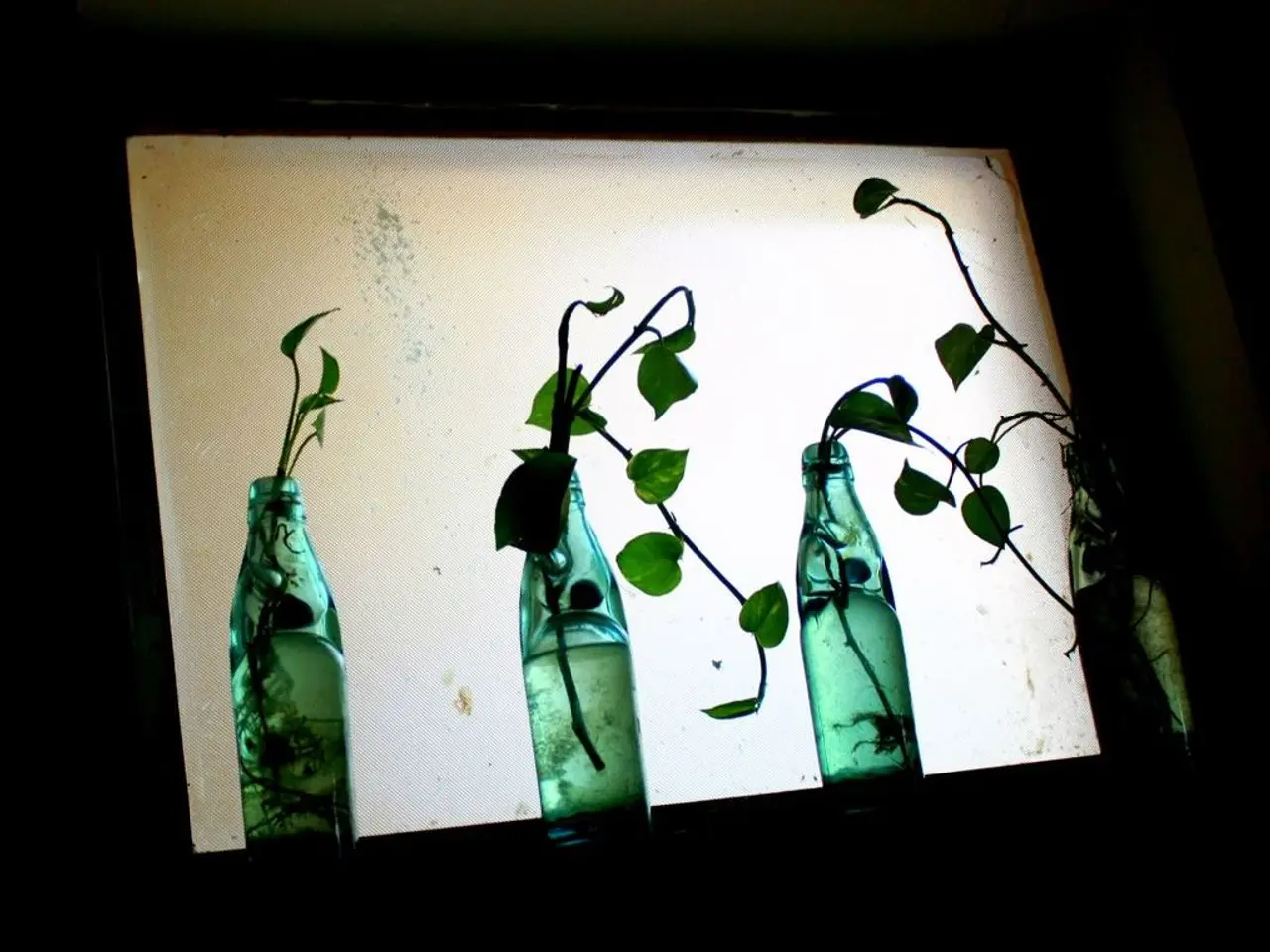EU-funded initiative announces groundbreaking achievement in hydrogen liquefaction process
The European Union-funded project has taken a significant step towards more efficient and eco-friendly hydrogen production with the launch of the first magnetocaloric pilot plant in Europe. This groundbreaking development, a collaboration between HyLical, Helmholtz-Zentrum Dresden-Rossendorf (HZDR), and startup Magnotherm, promises to revolutionise industrial hydrogen production.
The magnetocaloric pilot plant is designed for hydrogen liquefaction, with the ultimate aim of creating a plant that is more efficient and affordable than current liquefaction methods. The plant operates on the magnetocaloric effect, a new method for cooling that could potentially revolutionise industrial processes.
The magnetocaloric effect is triggered by placing materials with certain properties, such as lanthanum-iron-silicon alloy (LaFeSi), in a magnetic field. This causes a sudden drop or rise in temperature, which can be harnessed to cool hydrogen to -253°C after pre-cooling with liquid nitrogen, triggering liquefaction. Notably, magnetic cooling technology does not use environmentally harmful refrigerant gases, making it a climate-friendly and energy-efficient power solution.
Dr. Tino Gottschall, a scientist at HZDR's High Magnetic Field Laboratory Dresden (HLD), is spearheading the project. His vision is to create a plant that can produce 5,000kg of liquid hydrogen per day, a significant leap from the current target of 100kg per day. The next step is to increase efficiency to achieve this ambitious goal, demonstrating the scalability of the technology for industrial deployment.
The magnetocaloric pilot plant's current target is to increase efficiency to produce 100kg of liquid hydrogen per day. If successful, this will pave the way for large-scale industrial applications in the future. The pilot plant is also designed to reduce costs below €1.50 per kilo, making hydrogen production more accessible and affordable.
Dr. Hans Müller, the project leader involved in the EU-funded pilot plant, aims to demonstrate the scalability of the technology for industrial deployment. The success of this pilot plant could potentially lead to a future where the magnetocaloric pilot plant's future aim of producing 5,000kg of liquid hydrogen per day becomes a reality, transforming industrial hydrogen production and contributing to a more sustainable future.
Read also:
- Peptide YY (PYY): Exploring its Role in Appetite Suppression, Intestinal Health, and Cognitive Links
- Toddler Health: Rotavirus Signs, Origins, and Potential Complications
- Digestive issues and heart discomfort: Root causes and associated health conditions
- House Infernos: Deadly Hazards Surpassing the Flames








